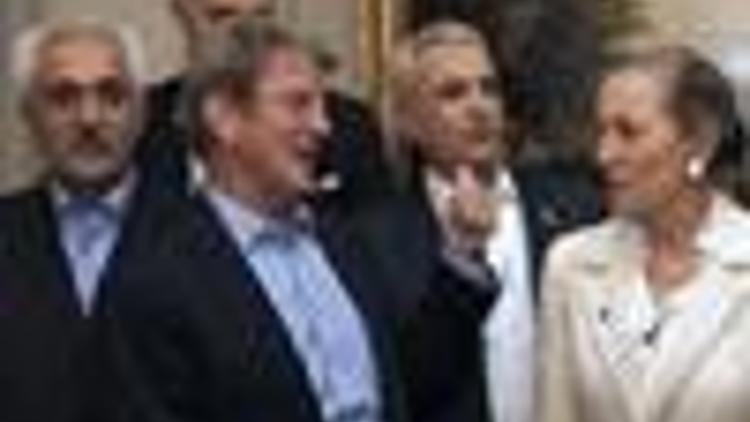Afghanistan's neighbors agree to stick together in Paris meeting
Güncelleme Tarihi:

Top envoys from Afghanistan, its neighbors and the international powers agreed Sunday at a meeting attended by Turkish Foreign Minister Ali Babacan to work together to restore stability in the war-torn state.
"There can be no long-term security and peace in the region without a stable, secure, prosperous and democratic
The envoys "expressed their support for existing initiatives to reinforce cooperation between
But, apart from a vague agreement "to work more closely to strengthen border security as a key component of counter-narcotics and counter-terrorism," no concrete measures were announced.
"We need a global strategy against terrorism," Afghan Foreign Minister Rangin Dadfar Spanta was quoted by AFP as saying.
U.N. envoy Kai Eide said: "We agreed to work together to control borders, and also to build the economic growth this region needs."
The conference got off to a bad start when Manouchehr Mottaki, the foreign minister of
No official reason was given for the no-show.
But it came a few days after
TURKISH FM STRESSES ASSISTANCE
Babacan told Turkish journalists prior to the meeting that 2009 would be an important year for
"The international community and the neighboring countries should assist
The
The conference hosts want to involve more Afghans in work to stabilize the country, where 70,000 foreign troops under NATO and
Since a U.S.-led coalition helped Afghan opposition troops overthrow the Taliban regime in 2001, the country has fallen back into the guerrilla conflict that so marred its recent history.
Many groups fighting foreign and Afghan troops in the south and east of the country have rear bases in
French officials had played down expectations of rapid progress, noting that little new in the way of policy can be decided until
Obama has argued that as the
The envoys held a day of closed-door talks at French Foreign Minister Bernard Kouchner’s official out-of-town residence at La Celle-Saint-Cloud in the western suburbs of
Despite
Representatives of regional power
As G8 members with troops in
The group was dine on Sunday at the foreign ministry, joined by representatives of Australia, the Netherlands, Japan, Kazakhstan, Kyrgyzstan, Poland, Saudi Arabia, Spain, and the United Arab Emirates.

